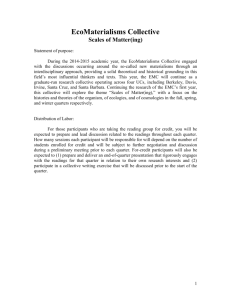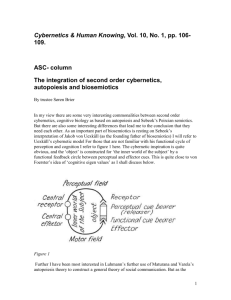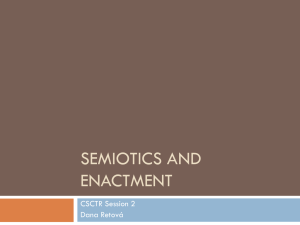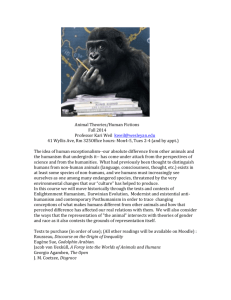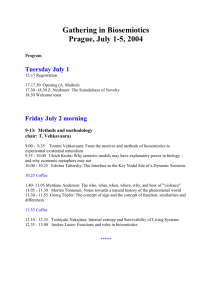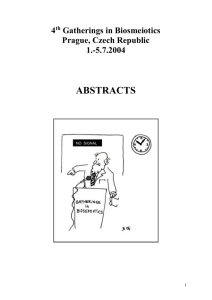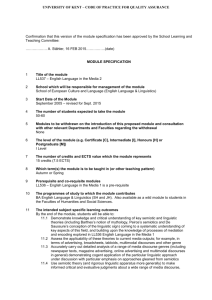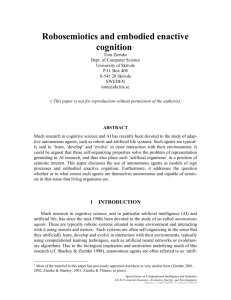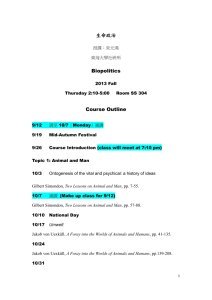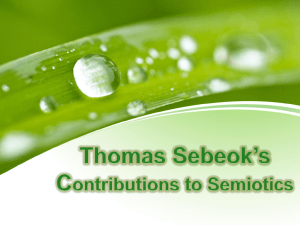Bodies in Motion 2008 - Florida Atlantic University
advertisement
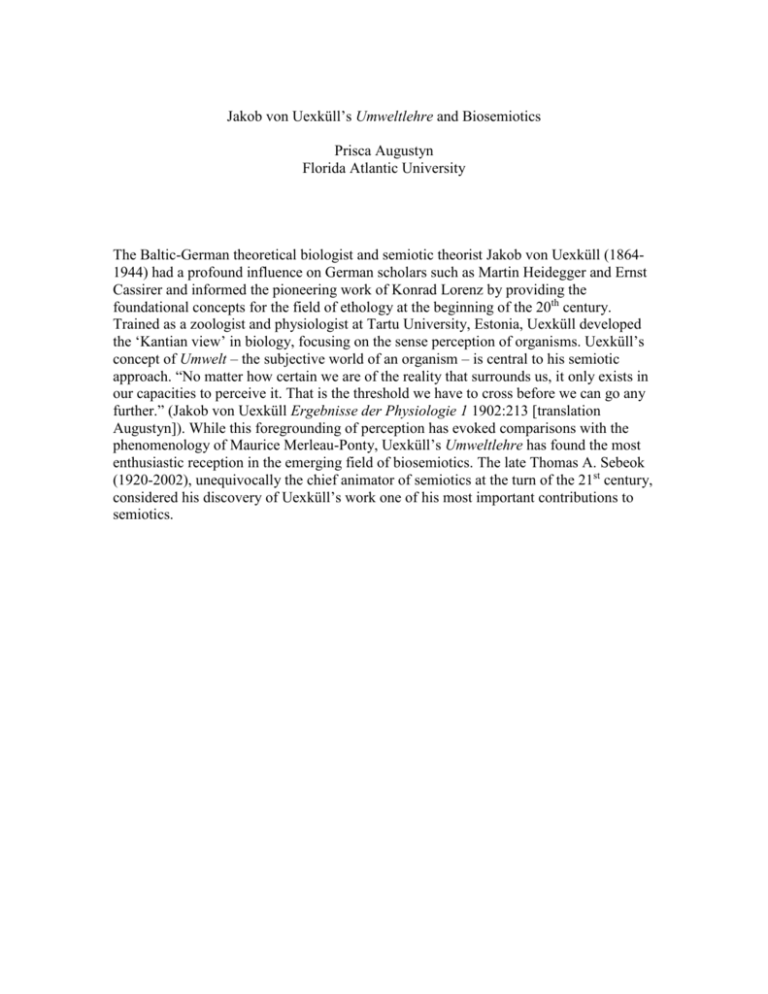
Jakob von Uexküll’s Umweltlehre and Biosemiotics Prisca Augustyn Florida Atlantic University The Baltic-German theoretical biologist and semiotic theorist Jakob von Uexküll (18641944) had a profound influence on German scholars such as Martin Heidegger and Ernst Cassirer and informed the pioneering work of Konrad Lorenz by providing the foundational concepts for the field of ethology at the beginning of the 20th century. Trained as a zoologist and physiologist at Tartu University, Estonia, Uexküll developed the ‘Kantian view’ in biology, focusing on the sense perception of organisms. Uexküll’s concept of Umwelt – the subjective world of an organism – is central to his semiotic approach. “No matter how certain we are of the reality that surrounds us, it only exists in our capacities to perceive it. That is the threshold we have to cross before we can go any further.” (Jakob von Uexküll Ergebnisse der Physiologie 1 1902:213 [translation Augustyn]). While this foregrounding of perception has evoked comparisons with the phenomenology of Maurice Merleau-Ponty, Uexküll’s Umweltlehre has found the most enthusiastic reception in the emerging field of biosemiotics. The late Thomas A. Sebeok (1920-2002), unequivocally the chief animator of semiotics at the turn of the 21st century, considered his discovery of Uexküll’s work one of his most important contributions to semiotics.
